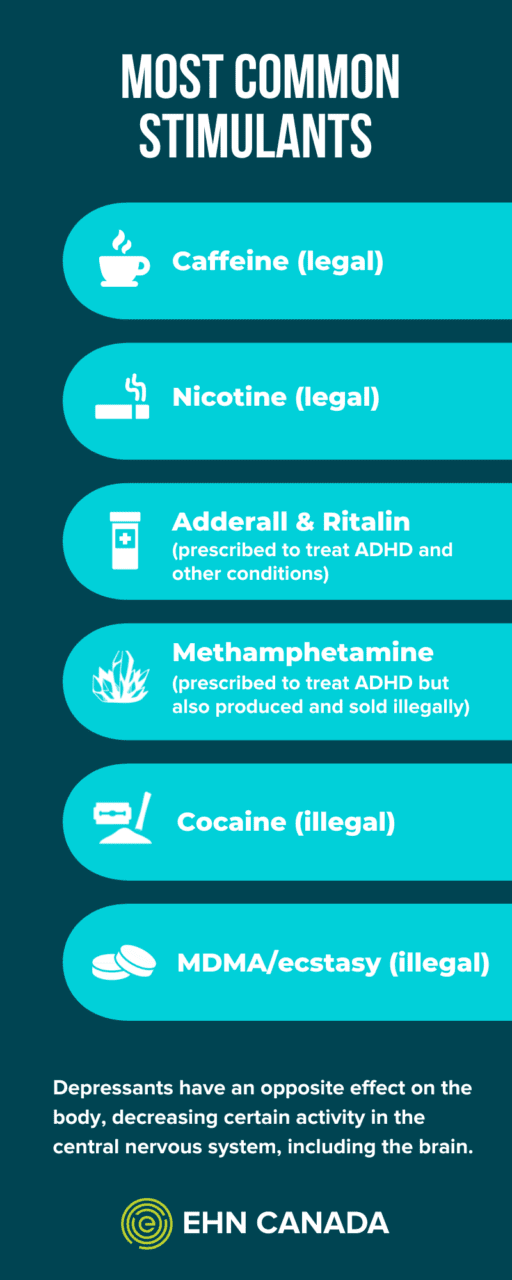Alcohol is one of the oldest and most widely-used recreational drugs in the world. While often associated with partying and having a good time, there is much more to consider when it comes to alcohol. Is it a stimulant or a depressant? This article will explore the effects of alcohol to help answer this question and provide insight into why it can have such a wide range of effects on the body.

Alcohol’s Effects on the Body: Stimulant or Depressant?
Alcohol is a complex substance with a range of physiological and psychological effects on the human body. It is often classified as a depressant because of its sedative and calming effects, but it can also have stimulating effects depending on the amount consumed. This article will explore the effects of alcohol on the body, what classifies it as a stimulant or depressant, and the risks associated with its use.
What is Alcohol?
Alcohol, also known as ethyl alcohol or ethanol, is a psychoactive chemical commonly found in alcoholic beverages. When consumed, it passes through the stomach, small intestine, and into the bloodstream, where it is then transported to the brain. Alcohol affects the body’s nervous system, altering the way a person thinks, feels, and behaves.
How Alcohol Affects the Body
In small doses, alcohol can act as a stimulant, producing feelings of relaxation and alertness. As the dose increases, it can begin to have sedating effects and can cause drowsiness, impaired coordination, and decreased reaction time. Over time, larger doses of alcohol can lead to more severe effects, such as slurred speech, confusion, and loss of consciousness.
What Classifies Alcohol as a Stimulant or Depressant?
Alcohol can be classified as both a stimulant and depressant depending on the amount consumed and the individual’s tolerance. In low doses, it can act as a stimulant, producing feelings of relaxation and alertness. As the dose increases, it can have sedating effects and can cause drowsiness, impaired coordination, and decreased reaction time.
Risks Associated with Alcohol Use
Despite the potential for both stimulant and depressant effects, alcohol carries a number of risks with its use. Alcohol is associated with an increased risk of a number of health conditions, including liver disease, heart disease, stroke, and certain types of cancer. Additionally, alcohol can impair judgment, leading to risky behaviors and potential legal consequences.
Short and Long-term Effects of Alcohol Use
Short-term effects of alcohol use can include impaired judgment, slurred speech, and decreased coordination. Long-term effects can include an increased risk of cancer, liver and heart disease, and memory loss. Additionally, alcohol can lead to addiction and dependence, which can have serious physical, mental, and social consequences.
Conclusion
Alcohol can act as both a stimulant and depressant depending on the amount consumed and the individual’s tolerance. It carries a number of risks with its use, including an increased risk of health conditions, impaired judgment, and addiction. It is important to be aware of the potential risks associated with alcohol use and to drink responsibly.
Top 6 Frequently Asked Questions
What is Alcohol Considered Stimulant or Depressant?
Answer: Alcohol is considered to be a central nervous system depressant. This means that it affects the body in a way that slows down brain activity, including the functioning of the heart, respiration, and other functions. This is why it is often referred to as a “downer”. It can cause drowsiness, impaired coordination, slurred speech, and slower reaction time.
What are the Effects of Alcohol as a Depressant?
Answer: The effects of alcohol as a depressant include impaired cognitive functioning, impaired motor skills, impaired judgment, and decreased alertness. Alcohol can also cause feelings of relaxation and sedation, as well as confusion and memory loss. In large quantities, alcohol can cause nausea and vomiting, and can even lead to a fatal overdose.
What are the Short-term Effects of Alcohol?
Answer: The short-term effects of alcohol can include impaired coordination and judgment, drowsiness, slurred speech, and slowed reaction time. In addition, drinking alcohol can lead to nausea, vomiting, dehydration, and blackouts. Alcohol can also impair vision and cause difficulty concentrating and making decisions.
What are the Long-term Effects of Alcohol?
Answer: The long-term effects of alcohol include various physical, mental, and social consequences. Some of these effects include liver damage, high blood pressure, heart disease, stroke, and certain types of cancer. In addition, alcohol abuse can lead to relationship problems, job loss, and financial difficulties. Heavy drinking can also cause depression, anxiety, and memory problems.
What is Alcohol Abuse?
Answer: Alcohol abuse is defined as the misuse of alcohol, which can lead to physical, mental, and social consequences. Alcohol abuse typically involves drinking too much, too often, and in ways that are harmful to oneself or others. It can also involve engaging in risky behaviors while under the influence, such as drinking and driving.
What are the Signs of Alcohol Abuse?
Answer: The signs of alcohol abuse can vary from person to person, but some common signs include changes in behavior, such as becoming more aggressive or agitated, or having difficulty controlling one’s temper. Other signs can include changes in physical appearance, such as drinking more than usual, blacking out after drinking, or drinking alone. Other signs of alcohol abuse include neglecting responsibilities, such as work or family, or engaging in risky behaviors, such as drinking and driving.
Truth Time! Is Alcohol a Stimulant or Depressant?
In conclusion, it is clear that alcohol has a complex effect on the body that is both stimulating and depressant. Alcohol is a stimulant when consumed in small amounts, however, it can quickly become a depressant when consumed in large amounts. The individual effects of alcohol depend on the individual and the amount consumed. It is important to understand the effects of alcohol and to drink responsibly, as excessive alcohol consumption can have serious health risks.

